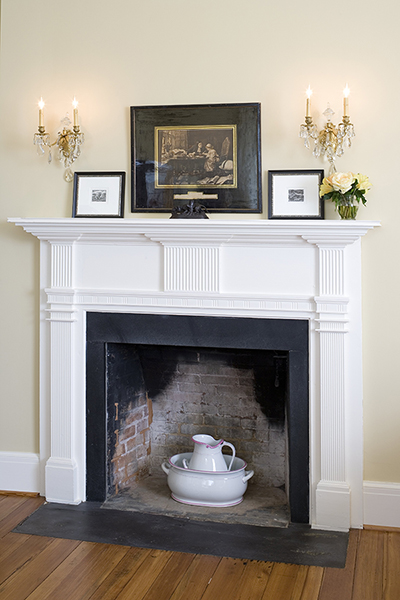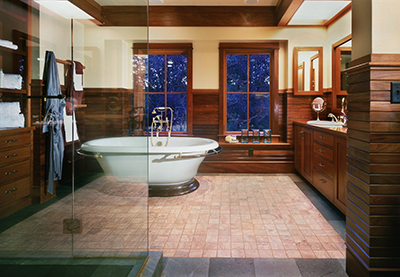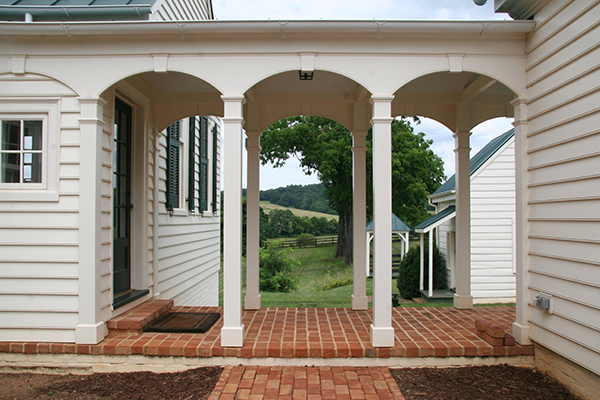“Master Builder” is an ancient term, the distinction given those builders whose gifts and abilities earned them responsibility for the design, workmanship and realization of unique structures. Today, the process that consolidates authority for all aspects of building your home.
Building is Our Focus
 Many of the Shelter homes and renovations that you see in the portfolio are Shelter designed and built; many are designed by other architects and built by Shelter. While Shelter takes great pride in the homes we have designed over the years, we currently focus our efforts on building from your plans. Although every step in our building process keeps design in mind, we have transitioned away from having an in-house design team, and instead work in close partnerships with some of Charlottesville’s premier architects and designers. This approach allows you the freedom to choose your designer while still promising you the strength and beauty of the workmanship for which Shelter is known. Shelter promises you the best house your money can buy and promises a trusting, creative, collaborative, satisfying building experience.
Many of the Shelter homes and renovations that you see in the portfolio are Shelter designed and built; many are designed by other architects and built by Shelter. While Shelter takes great pride in the homes we have designed over the years, we currently focus our efforts on building from your plans. Although every step in our building process keeps design in mind, we have transitioned away from having an in-house design team, and instead work in close partnerships with some of Charlottesville’s premier architects and designers. This approach allows you the freedom to choose your designer while still promising you the strength and beauty of the workmanship for which Shelter is known. Shelter promises you the best house your money can buy and promises a trusting, creative, collaborative, satisfying building experience.
Historic Renovations
Shelter has had the opportunity to renovate some of Albemarle’s most prestigious residences. Our company’s 42 year history building in Albemarle County has cultivated our dedication to renewing structural and aesthetic features, while maintaining the original character and integrity of these timeless homes.
Building Relationships
 From the first phone call to our office in downtown Charlottesville, through your project’s completion, you will be met not only by our commitment to building enduring structures, but by our commitment to building enduring relationships. Many first time clients have in turn become lifelong clients and dear Shelter friends.
From the first phone call to our office in downtown Charlottesville, through your project’s completion, you will be met not only by our commitment to building enduring structures, but by our commitment to building enduring relationships. Many first time clients have in turn become lifelong clients and dear Shelter friends.
When you call or email Shelter about your prospective project, the conversation usually starts with a brief description of the scope of the project, who the designer or architect will be, and your approximate time frame. Timing is everything, and schedule can be a determining factor in taking on projects. However, we remain open to hearing about any and all projects, knowing that schedules can change and flexibility is key. Following an initial conversation, one of our lead project managers may offer to meet on site to look at and discuss your project further. With plans, schedule and scope in hand, we would begin to craft an estimate proposal. If our proposal is accepted, we work closely with client and architect to refine schedule, scope and budget and document our progress along the way.
Documenting Progress
From start to finish, we provide clients with clear outlines of each aspect of the project.
Client Estimate – A detailed list of costs through each job phase. Our estimator’s meticulous approach to understanding the scope of work and creating detailed cost estimates to match is one way that shelter gets it right, right from the start.
Client Cost Comparisons – Cost estimates compared, as they evolve according to your unique needs: Our cost comparisons reflect a process of value engineering that fine-tunes the budget to best meet your needs. It allows us to find that sweet spot where value and quality unite for each unique client.
Client Contract – Provides the support to both client and contractor to ensure legal agreement on the terms of the project.
Client Job Cost Summary – Keep track of the cost percentages, changes, and budget at various stages throughout the building process: You don’t have to wonder what costs have accrued and which remain. Our cost summaries, or “variance reports,” will give an up to date look at current costs compared with what has been budgeted.
Client Billing – A well-organized bill outlines monthly costs. Each month clients receive a statement of account, followed by a time and materials invoice neatly divided by cost types. Client bills include copies of material receipts and subcontractor invoices, so that each cost is clear.
Weekly Report – Documents on site progress, decisions or changes made from week to week, and helps all parties collaborate on critical path issues to keep the project moving. Weekly photographs included.





 Client Contract – Provides the support to both client and contractor to ensure legal agreement on the terms of the project.
Client Contract – Provides the support to both client and contractor to ensure legal agreement on the terms of the project.